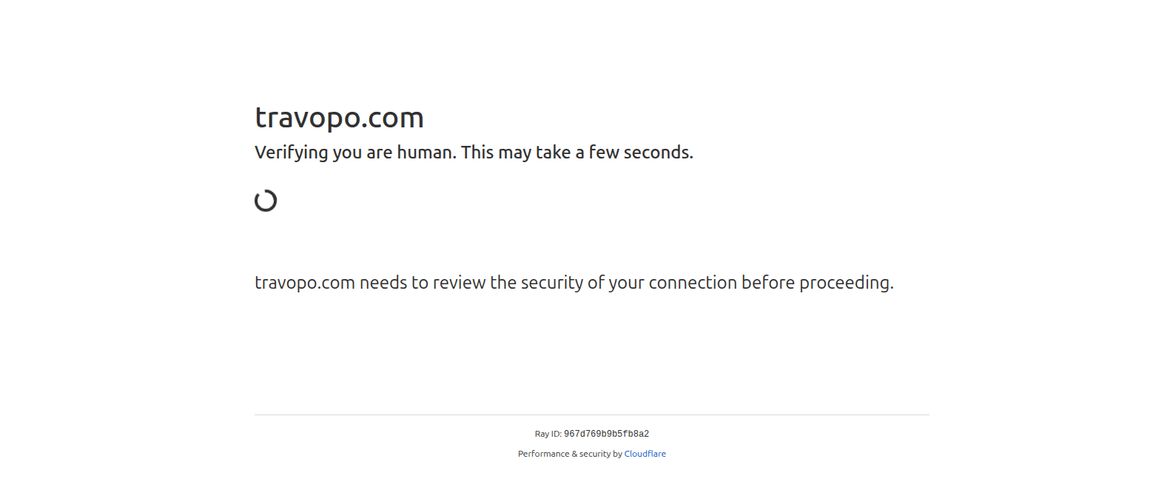As someone who’s been neck-deep in SEO and digital trends for years, I get a little thrill when I hear about a new tool that promises to shake things up. It’s like being a storm chaser, but for technology. The latest blip on my radar? A platform called Wilfind.
The buzz was about a smarter way to shop online, powered by an AI assistant named—you guessed it—Wilbot. The promise was simple and powerful: a single place to find everything you need, guided by an intelligent bot that gets you. Sounds pretty great, right? In a world of a million browser tabs and endless scrolling, a digital shopping buddy is the dream.
So, I did what any curious tech blogger would do. I cleared my afternoon, brewed a fresh cup of coffee, and typed the URL into my browser, ready to meet Wilbot. And I was greeted with… a 404 error. “This page could not be found.”
Huh. Well, that’s not ideal. But it is… interesting. It turns a simple tool review into a bit of a detective story. So, let's put on our deerstalker hats and figure out what’s going on with Wilfind.
So, What Was Wilfind Supposed to Be?
Just because the front door is locked doesn't mean we can't peek in the windows. From the whispers I'd heard and the digital breadcrumbs I could find, Wilfind wasn’t just another e-commerce site. It was pitched as a comprehensive shopping solution. Think of it as an attempt to cure the classic “decision fatigue” we all get when trying to buy a simple pair of headphones and are suddenly faced with 5,000 options.
The star of the show was Wilbot, its AI-powered assistant. The idea is that instead of you searching for products, you’d simply talk to Wilbot. “I need a waterproof jacket for a hiking trip in Scotland next month, my budget is around $150, and I prefer blue.” In theory, Wilbot would then go and do the heavy lifting, presenting you with a handful of perfect options instead of a mountain of irrelevant ones.
The Allure of an AI Shopping Buddy
Let’s be real for a second. Online shopping can be a chore. The initial excitement of buying something new often gives way to the soul-crushing reality of comparing specs, reading sketchy reviews, and trying to figure out if that third-party seller is legitimate. It's a mess.
An AI assistant like Wilbot is so appealing because it acts as a filter. It’s like having that one super-stylish, incredibly knowledgeable friend who always knows the best stuff. It’s a personal shopper for the masses, a concierge for your digital cart. This isn't just about convenience; it's about getting back our most valuable resource: time.
Personalization on a Whole New Level
We've grown accustomed to basic personalization. You know, the classic “Customers who viewed this item also viewed…” from Amazon. It’s fine, but it’s not smart. It’s based on herd mentality, not individual taste.
A true AI assistant could learn your personal style, your ethical preferences (e.g., sustainable brands), and your real-world needs. It could connect the dots. “You bought a new yoga mat last month; are you running low on athletic wear?” That's a level of service that, until now, has been reserved for high-end bespoke retailers. Wilfind’s goal, it seems, was to democratize that experience.

Visit Wilfind
Cutting Through the Digital Clutter
The internet is loud. Every brand is shouting for your attention. An AI shopping assistant is a promise of quiet. It’s a tool designed to turn down the volume, presenting you with a curated selection that actually makes sense for you. No more pop-ups, no more endless scrolling through pages of knock-offs. Just a simple, intelligent conversation that leads to a purchase you feel good about.
But... Where Did It Go? The Mystery of the 404 Page
This brings us back to the big question. If the idea is so good, where is the platform? A 404 error for a supposedly active tool is a major red flag. There are a few possibilities here, and this is purely my speculation based on years of watching startups rise and fall.
- Stealth Mode: It could be that Wilfind is still in a private beta or development phase, and the public-facing site isn't live yet. Maybe they pulled it back to retool before a big launch.
- Pivoted or Acquired: The startup world moves fast. The team could have been acquired by a larger company for their technology (the classic “acqui-hire”), or they might have pivoted to a different business model.
- Ran Out of Runway: This is the sad reality for many ambitious projects. Building and running a sophisticated AI platform is expensive. It's possible they simply couldn’t secure the funding to keep the lights on. It's a tough market out their.
The fact that there's such limited information available online supports these theories. It feels like a project that was either just getting started or one that vanished before it could make a major splash.
Potential Hurdles for a Platform Like Wilfind
Building an AI shopping assistant is not for the faint of heart. Even with a brilliant concept, the path is filled with challenges. One of the known technical tidbits about Wilfind was that it required JavaScript to function. That's pretty standard these days, but it points to a larger truth: building tech is complex.
Beyond the code, you have the immense challenge of data. For an AI like Wilbot to be truly effective, it needs a colossal amount of product data and user behavior data. This brings up concerns about privacy and security. How is that data stored? Who has access to it? Any platform in this space has to have rock-solid answers to these questions. Then there’s the simple fact that you’re competing with titans like Amazon, Google Shopping, and now even social media platforms with integrated commerce. It’s a brutal arena.
Is Wilfind Still a Thing? And What About Pricing?
As of right now, Wilfind seems to be a digital ghost. There’s no public pricing information, no active signup page, and no official announcement I can find. This is pretty typical for a tool that's either pre-launch or has been discontinued.
If it were to launch, how might it be priced? I could see a few models working. It could be a freemium service, where basic Wilbot queries are free but advanced features require a subscription. Or, it could be entirely free to the user, with Wilfind taking a commission from vendors for sales it facilitates. Without an official page, we're left to guess.
The Future of AI in E-Commerce Is Bright, With or Without Wilfind
Here’s the thing: even if Wilfind never fully materializes, the idea behind it is the undisputed future of online retail. The concept of conversational commerce, guided by AI, is not going away. According to a report by Gartner, AI is a key strategy for accelerating digital commerce, enabling things like hyper-personalization and automated decision-making.
We are seeing this trend everywhere. Chatbots on websites are getting smarter. Recommendation algorithms are becoming more sophisticated. The journey Wilfind started, or at least hinted at, is part of a much larger movement. The desire for a more human, efficient, and personalized shopping experience is universal.
Frequently Asked Questions
- What is Wilfind?
- Wilfind was conceptualized as an e-commerce platform featuring an AI assistant named Wilbot. Its goal was to provide a smart, centralized, and personalized shopping experience by having the AI help users find exactly what they need.
- What is Wilbot?
- Wilbot is the name of the AI-powered shopping assistant that was the core feature of the Wilfind platform. It was designed to understand natural language queries to help users discover products based on their specific needs and preferences.
- Is Wilfind free to use?
- There is no official information on pricing for Wilfind, as the platform does not appear to be publicly accessible. Any pricing model would be purely speculative at this point.
- Why can't I access the Wilfind website?
- Currently, the Wilfind website displays a 404 error, meaning the page cannot be found. This could be for various reasons, including the service being in private development, discontinued, or undergoing a major overhaul.
- What are some alternatives to Wilfind?
- While there may not be a direct one-to-one replacement, the concept of AI-assisted shopping is growing. You can see elements of it in the advanced search filters of major retailers, the chatbots on brand websites, and personalized recommendation engines like those used by Stitch Fix or Amazon's own features.
Conclusion: A Promising Idea, Awaiting Its Moment
So, my search for Wilfind ended at a dead end, but the journey wasn't a waste. It’s a perfect snapshot of the tech world in action: full of brilliant ideas, ambitious goals, and the harsh reality that not every project makes it to the finish line. Whether Wilfind is a ghost, a work-in-progress, or something else entirely, it represents a future I’m genuinely excited about.
The dream of a smarter, kinder, and more intuitive way to shop online is very much alive. I’ll keep my ear to the ground for Wilfind, or for the next platform that picks up this torch. For now, it remains an intriguing mystery—a ghost in the e-commerce machine.
Reference and Sources
- Gartner, Inc. (2022). Gartner Identifies Three Strategies for CIOs to Lead Digital Commerce Acceleration. Retrieved from https://www.gartner.com/en/newsroom/press-releases/2022-06-22-gartner-identifies-three-strategies-for-cio-s-to-lead-digital-commerce-acceleration



